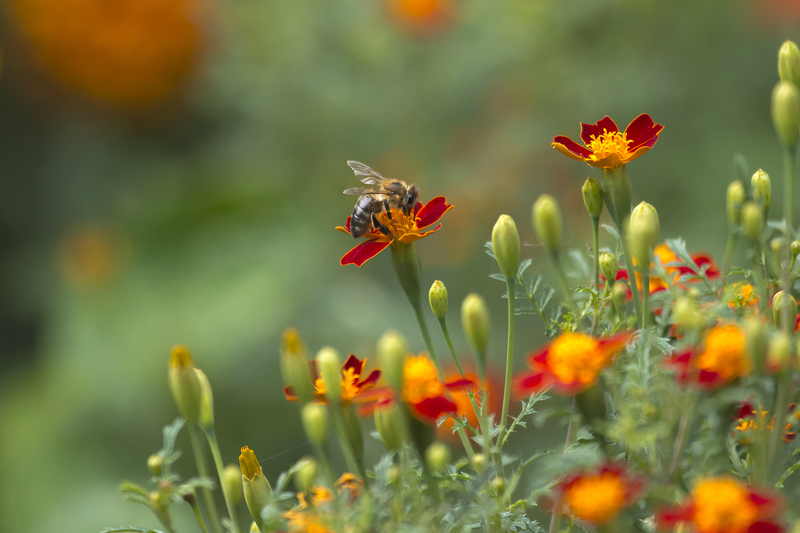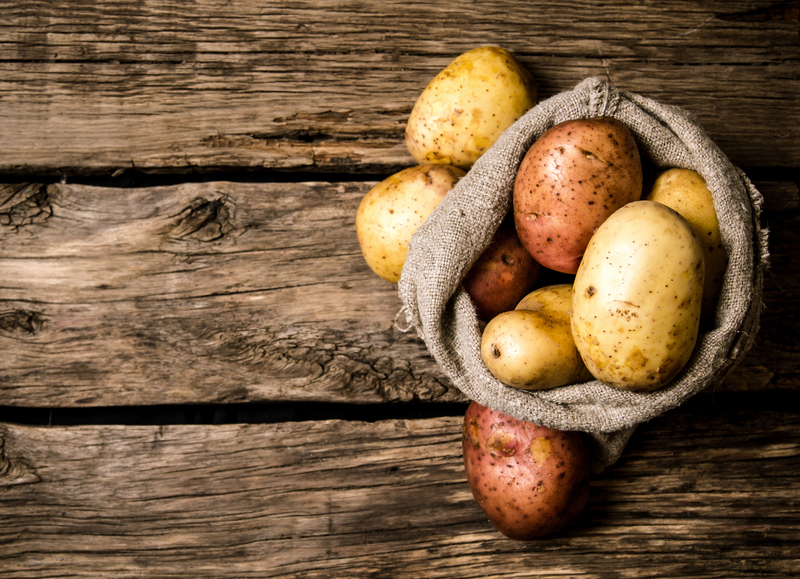Beginner's Guide: 9 Crucial Gardening Tips to Follow
Posted on 31/05/2025
Beginner's Guide: 9 Crucial Gardening Tips to Follow
Gardening is a rewarding and relaxing hobby that enhances the beauty of your home and provides fresh air, healthy vegetables, and vibrant flowers. But for beginners, diving into the world of horticulture can be daunting. To make your gardening journey smooth and enjoyable, we've compiled this comprehensive guide featuring nine essential gardening tips tailored specifically for beginners. Whether you are growing plants in pots on your balcony or starting a raised bed in your backyard, these guidelines will help you flourish as a new gardener.
Why Start Gardening as a Beginner?
Gardening offers a wealth of benefits--both physical and mental. Spending time with nature, nurturing plants, and enjoying the fruits of your labor can reduce stress, provide exercise, and even boost your mood. Plus, there's nothing quite like eating a homegrown tomato or enjoying the scent of lavender from your own garden. If you're new to gardening, this article will equip you with practical gardening knowledge to get your hands dirty successfully!

1. Choose the Right Location
- Sunlight: Most vegetables and flowers need 6-8 hours of direct sun daily. Monitor how the sun moves over your space during the day.
- Accessibility: Choose a spot that's easy to reach for watering, weeding, and harvesting.
- Protection: If possible, select a location shielded from strong winds but with good air circulation.
For apartment dwellers or those with limited space, container gardening or vertical gardening on balconies and patios can be equally productive.
2. Understand Your Soil
Healthy soil is the foundation of a thriving garden. Before planting, take time to assess your soil's texture and quality. Grab a handful and squeeze--it should be crumbly and not too sandy or clay-heavy.
- Test your soil: Many garden centers sell DIY soil test kits to check pH and nutrient levels.
- Amend as necessary: Add compost or well-rotted manure to enrich poor soil. If planting in containers, choose a quality potting mix.
If your soil is too rocky or challenging to work with, consider building raised beds or using containers filled with high-quality soil mix. This gives your plants the best start possible.
3. Pick the Right Plants
Choosing suitable plants for your environment is vital. Resist the urge to purchase every beautiful plant you see. Instead, do a bit of research:
- Climate and Hardiness Zone: Look up your USDA Hardiness Zone and select plants that thrive in your region's conditions.
- Space Limitations: Choose compact varieties for smaller spaces or containers.
- Maintenance: Opt for beginner-friendly, hardy species like tomatoes, radishes, marigolds, zinnias, or herbs such as basil and mint.
Start small! Master easy plants before expanding to more demanding varieties.
4. Timing Matters: Know When to Plant
Even the best plants can falter if planted at the wrong time. Each species has its own planting calendar. Refer to seed packets or local gardening resources to determine the ideal sowing season. As a general rule:
- Cool-Season Crops: Lettuce, peas, broccoli, and spinach grow best in spring or fall.
- Warm-Season Crops: Tomatoes, peppers, beans, and corn prefer late spring or summer once frost danger has passed.
For flowers, check whether they're annuals (grow one season) or perennials (return yearly) and time your planting accordingly.
5. Water Wisely
- Check soil moisture: Insert your finger about an inch into the soil. If it feels dry, water thoroughly.
- Water at the base: Aim for the soil, not leaves. Water in the early morning or evening to reduce evaporation.
- Deep and infrequent: Water deeply and less often to encourage strong root growth--instead of frequent, shallow watering.
If you are using containers, check moisture daily, as pots dry out much faster than beds.
6. Mulching: The Beginner's Secret Weapon
Mulching is one of the best gardening techniques for beginners.
- Apply a 2-3 inch layer of organic material such as shredded leaves, straw, grass clippings, or wood chips around your plants.
- Avoid piling mulch against stems: Leave a small gap near plant bases to avoid rot.
A well-mulched garden not only saves water but also cuts down on weeding time, making gardening more enjoyable for beginners.
7. Feed Your Plants Properly
Plants need more than water and sunlight--they also require nutrients. Fertilizing properly ensures your garden thrives:
- Compost: Incorporate compost at planting time for a slow-release source of nutrients.
- Organic Fertilizers: Use organic mixes suitable for your plant types, following recommended application rates.
- Observe plant health: Yellowing leaves, stunted growth, or poor fruit set may indicate nutrient deficiencies.
*Tip: Less is often more--avoid overfeeding, which can cause fertilizer burn or excessive leaf growth at the expense of blooms or fruit.*
8. Master Basic Garden Maintenance
Maintaining your garden is an ongoing process. Regular care leads to flourishing plants and a more enjoyable experience overall. Commit to these essential tasks:
- Weeding: Pull weeds promptly to prevent competition for water and nutrients.
- Pruning: Trim dead or diseased stems to promote healthy growth and better airflow.
- Monitoring: Check regularly for pests and diseases. Act early to avoid bigger problems.
Consistency is key--spend a little time each day, and your garden will stay manageable and vibrant.
9. Embrace Learning and Patience
Gardening is an ongoing learning process, filled with trial and error. Even the most experienced gardeners learn from occasional setbacks. Don't be discouraged by failures--each season brings new opportunities to grow.
- Take notes: Keep a garden journal to record what works, what fails, and the timing of your tasks.
- Connect with others: Join local gardening groups or online communities for inspiration and advice.
- Celebrate small successes: Every sprout and harvest is a step forward!
Remember, patience is essential in gardening. Plants take time to grow and mature. Enjoy the journey, appreciate the small wins, and don't hesitate to enjoy the process.

Frequently Asked Questions About Gardening for Beginners
What are the easiest vegetables for beginner gardeners?
- Radishes
- Lettuce
- Cherry tomatoes
- Carrots
- Green beans
- Herbs such as basil, parsley, and mint
How often should I water my garden?
Water needs depend on the type of plants, soil, and weather. Generally, most gardens need about 1 inch of water per week. Check your soil moisture and adjust accordingly.
Do I need a lot of space to start a garden?
No! Container gardening allows you to grow vegetables, herbs, and flowers on balconies, decks, or patios. Choose compact plant varieties and proper containers for best results.
How do I prevent pests naturally?
- Encourage beneficial insects like ladybugs.
- Hand-remove pests when possible.
- Use floating row covers to protect young plants.
- Practice crop rotation and companion planting.
Conclusion: Start Growing Today!
Embarking on your gardening journey is both educational and fulfilling. With these nine crucial gardening tips for beginners, you will develop skills, gain confidence, and enjoy seeing your efforts bloom--literally! From understanding sunlight and soil to choosing suitable plants and embracing patience, each step forms the basis of a successful, beautiful garden.
Latest Posts
Innovative Methods to Deal with Wind-Filled Gardens
Safeguard Your Garden from Nature's Threats
Unlock the Secrets to Budget-Friendly, Low Maintenance Gardening

